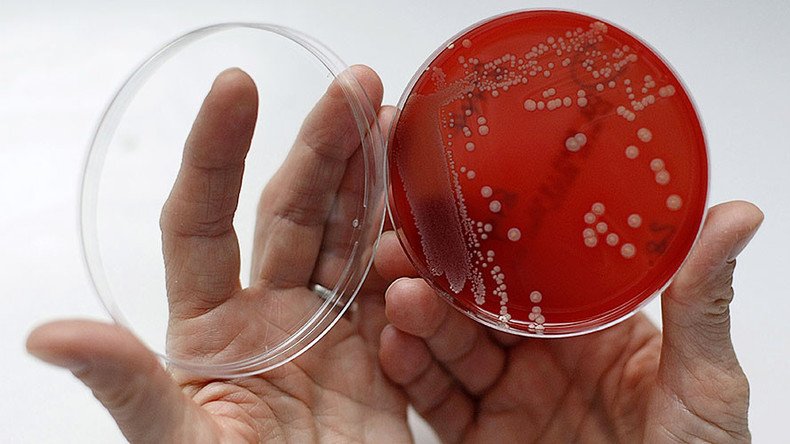Drug-resistant superbug sent to space for study – NASA

NASA is sending superbug bacteria into space to study why it proliferates in microgravity. Longer term, the space agency wants to keep astronauts healthy during long voyages to asteroids or Mars.
The superbug, Methicillin-resistant Staphylococcus aureus (MRSA) or staph, was included in a cargo of nearly over 5,000 pounds of equipment, supplies and research material launched on SpaceX Falcon 9 rocket on Sunday from Florida.
Researchers want to understand why bacteria grows faster, mutates more readily, becomes more infectious, and resistant to antibiotics than on Earth.
“We are excited to put MRSA, which is a superbug, on the International Space Station and investigate the effects of microgravity on the growth and mutation patterns of these bugs,” said Anita Goel, chairman and science director of Nanobiosym, which developed the experiment with the Center for Advancement of Science in Space, according to WYMT.
We just sent deadly MRSA to the Space Station, while here high-security labs are shut over air hose safety concerns https://t.co/K8TjkPpK7N
— Nellie Sabin (@BookMD) February 20, 2017
Goel said concerns about the superbug spreading on the space station should be allayed as astronauts will never come in direct contact with the bacteria. The bacteria will be sealed in three levels of containment and tightly package, including a portable habitat that is protected from rapid depressurization and even the rigors of travelling on a rocket to the station.
MRSA, often called staph, is resistant to antibiotic methicillin and many others. It causes a variety of health problems included sepsis, pneumonia, skin and bloodstream infections.
Research has shown that the “stressful conditions” of the space station’s microgravity environment causes fungi to grow faster. Goel hopes that it will do the same for bacteria.
“I have a hypothesis that microgravity will accelerate the mutation patterns. If we can use microgravity as an accelerator to fast forward and get a sneak preview of what these mutations will look like, then we can essentially build smarter drugs back on Earth,” said Goel.
Scientists sent the superbug MRSA into space to improve our understanding of how it develops a resistance to drugs https://t.co/1aHR1yKHdM
— PHYSICS FUNdamentals (@PHYSICS_FUN_01) February 20, 2017
Microbiologists found some space station astronauts in orbit experience subtle changes in the protective mix of microbes in their bodies, called the microbiome, that influence how well their immune systems wards off infection.
“We see they are responding in ways that are completely unexpected,” microbiologist Cheryl Nickerson at Arizona State University’s Biodesign Institute, who studies how bacteria behave in space told WSJ. “What are bacteria going to do over a long duration as we get farther and farther from Earth?”
#SpaceX launches its 10th resupply mission to Intl Space Station https://t.co/i4mQPK9P93pic.twitter.com/rAleKaNEdh
— RT (@RT_com) February 19, 2017
NASA researchers have studied bacteria in space since the 1960s, when US scientists discovered E.coli and salmonella grew twice as fast in orbit as on Earth. Soviet-era Russian researchers in the 1970s determined that infectious microbes like staphylococcus abroad their spacecraft had increased resistance to five common antibiotics. Not until 2006 did scientists prove in tests with lab animals that some bacteria became more lethal while in orbit.
“As we look at longer-term missions, we have to know the risks and how to protect the health of these astronauts,” microbiologist Kasthuri Venkateswaran at NASA’s Jet Propulsion Laboratory in Pasadena, California, who studies the micro-organisms found aboard the space station told WSJ.
Superbug resistant to every antibiotic available in US kills Nevada woman https://t.co/JO7xAqOefx
— RT (@RT_com) January 15, 2017
Twenty mice also are on board to help researchers learn more about what processes prevent most vertebrates from regrowing lost limbs or tissues. All 20 will be euthanized, dissected on the station and return to Earth for comparisons with mice that underwent the same procedures on Earth.












